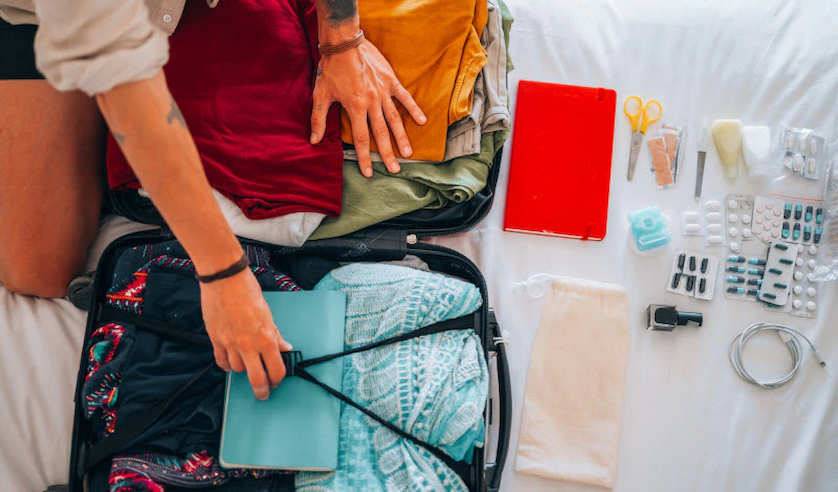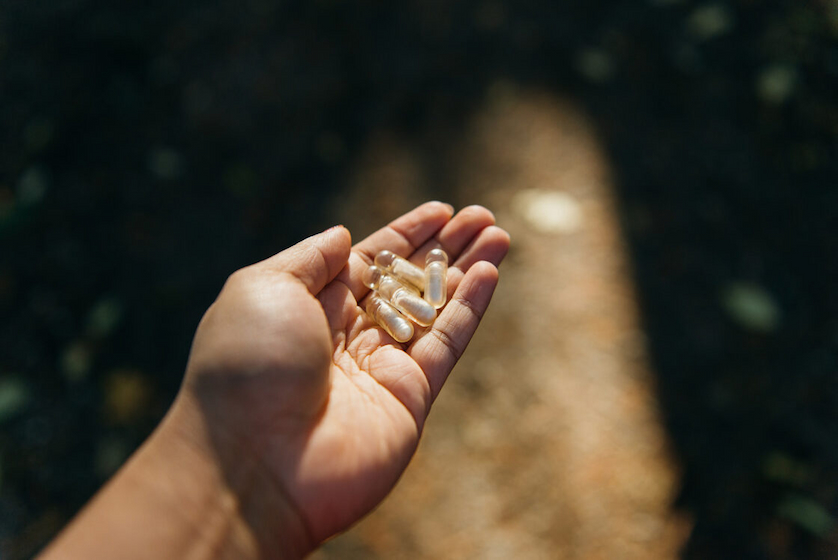Probiotics are live microorganisms that can improve your health, especially by balancing the bacteria in your gut. This balance can improve digestion and strengthen your immune system. Given the fact that these supplements beneficially affect the gut, it’s believed that they can help with certain skin conditions as well. It’s also said that taking probiotics may also reduce inflammation throughout the body.
Why Take Them During Your Travel?

Some people believe they should only take these supplements during a stomach bug or while taking antibiotics to prevent diarrhoea, but they are safe to take daily, especially when travelling.
Travel often involves trying various foods and drinking different water while adjusting to changing time zones. All of this can contribute not only to travel diarrhoea, but also to constipation, bloating and food poisoning. But luckily, probiotics can help reduce the likelihood of developing any of these conditions.
These supplements contain friendly bacteria, many of which naturally live in your gut. When they interact with your immune cells, probiotics supplements help maintain a healthy gut. In other words, they support a stronger immune and digestive system, allowing your stomach to function well no matter the time zone or the food you eat.
These supplements are a combination of different bacteria that can keep constipation, bloating and diarrhoea at bay when travelling. By taking them at least 10 days before travelling, they will form a protective barrier over the mucous lining of the intestinal tracts and protect your body against the entry of any harmful pathogenic bacteria through water or food.
Ultimately, taking supplements before your travels is paramount in helping good bacteria develop in your gut, improving your digestive and immune system. That being said, you should continue taking probiotics supplements for at least two weeks after returning home.
Which One to Choose?
When selecting the right type of supplement, there are some important things to take into account to ensure that you have made the right choice:
- Strive to choose a probiotic that contains a range of good bacteria such as Lactobacillus and Bifidobacteria.
- You should also choose one with a CFU (colony-forming unit) of 30 billion, as they are the most recommended type for travelling.
- Additionally, make sure to check the best-before-use date, as this can affect the probiotic’s effectiveness.
- Opt for shelf‑stable probiotics since you’re unlikely to have constant access to a refrigerator. In other words, probiotics that need to be refrigerated aren’t recommended for use when travelling.
How to Support Your Health Before Travelling/Holiday?

Eating lighter food and spending time outdoors are key ways to support your overall health, not just before travelling. Exposing ourselves to the sun, taking much-needed vitamin D, and breathing in fresh air can do wonders for our well-being. Allowing the skin to absorb the sun slowly when the UV isn’t too strong is one of the best things you can do for your body, as that way you are helping it produce vitamin D.
Supporting your digestive system is essential for ensuring regular bowel movements. Using the right dose of probiotics, prebiotics, and digestive enzymes can help you achieve this.
Another thing you can do (if possible) is switch to two minutes of cold water at the end of your usual morning shower, as this can help you stimulate the vagus nerve and increase parasympathetic nervous system activity. It’s of vital importance to start gradually with 30 seconds and move up to 30 seconds each week until you reach two minutes.
To promote good digestive health, you can also take probiotic food alongside your probiotic. Consuming probiotic food like kefir or yoghurt before, during, and after a trip is one of the safest ways to support your gut health and experience no problems at all. The last thing you can do to support your digestive system is to take herbal tea, magnesium, digestive enzymes and multivitamins as an addition to a probiotic. The same goes for both children and adults, as everyone can experience gut and stomach problems when travelling. So, preventing them would be better than curing them, right?!
Last but not least, remember to maintain good hygiene. Washing fruits, vegetables, and your hands before eating is essential, along with choosing freshly cooked, lighter meals. Drinking clean water is also crucial, so to stay safe and minimise any risk of gut-related problems, you should only drink bottled water.












